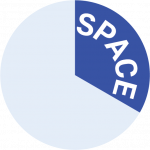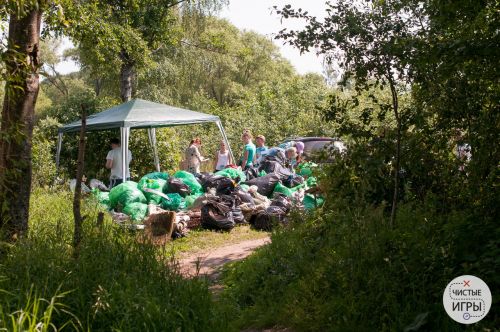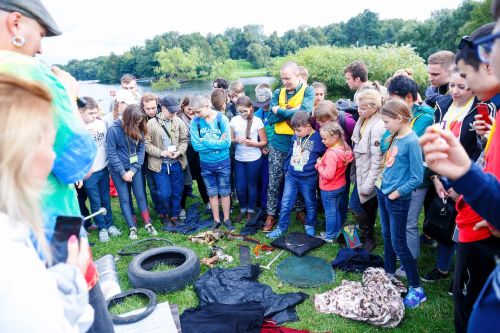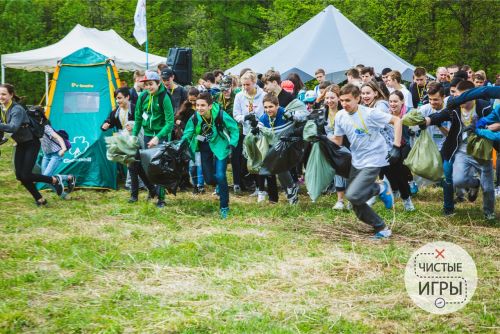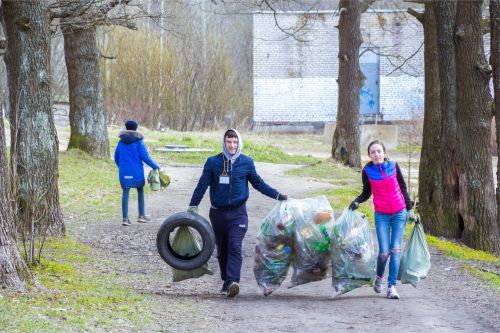(Created page with "Category:Test {| |- | <h2>Author:</h2> | <h3>Höweler + yoon architecture</h3> |- | colspan="2" | <h4>Boston, usa, 2014 |- | colspan="2" |http://www.howeleryoon.com/work/4...") |
(Set up page, description, authors, pictures and categories) |
||
| Line 5: | Line 5: | ||
<h2>Author:</h2> | <h2>Author:</h2> | ||
| | | | ||
<h3> | <h3>Dmitry Loffe + Vadim Ivanov</h3> | ||
|- | |- | ||
| colspan="2" | | | colspan="2" | | ||
<h4> | <h4>St. Petersburg, Russia, 2015 | ||
|- | |- | ||
| colspan="2" | | | colspan="2" |https://cleangames.org | ||
|} | |} | ||
{{GAME | {{GAME | ||
| Purpose_Activation = 1 | | Purpose_Activation = 1 | ||
| Purpose_Interconnection = | | Purpose_Interconnection = 1 | ||
| Purpose_Raise_awareness = | | Purpose_Raise_awareness = 1 | ||
| Purpose_Educate = | | Purpose_Educate = 1 | ||
| Purpose_Visualise_needs = 0 | | Purpose_Visualise_needs = 0 | ||
| Purpose_Simulate_impact_of_decisions = 0 | | Purpose_Simulate_impact_of_decisions = 0 | ||
| Line 23: | Line 23: | ||
| Co-Creation_Co-analysis = 0 | | Co-Creation_Co-analysis = 0 | ||
| Co-Creation_Co-design = 0 | | Co-Creation_Co-design = 0 | ||
| Co-Creation_Co-implementation = | | Co-Creation_Co-implementation = 1 | ||
| Co-Creation_Co-maintenance = | | Co-Creation_Co-maintenance = 1 | ||
| Co-Creation_Co-monitoring = | | Co-Creation_Co-monitoring = 1 | ||
| Outcome_Decision_making = 0 | | Outcome_Decision_making = 0 | ||
| Outcome_Knowledge = | | Outcome_Knowledge = 1 | ||
| Outcome_Design = 0 | | Outcome_Design = 0 | ||
| Outcome_Inclusion = | | Outcome_Inclusion = 1 | ||
| Outcome_Awareness = | | Outcome_Awareness = 1 | ||
| Outcome_Partnership = | | Outcome_Partnership = 1 | ||
|Purpose_Collaborating= | |Purpose_Collaborating=1|Outcome_Assessment=0}}{{PLAY | ||
| Aesthetics_Sensation = | | Aesthetics_Sensation = 0 | ||
| Aesthetics_Imagination = | | Aesthetics_Imagination = 0 | ||
| Aesthetics_Assemblage = | | Aesthetics_Assemblage = 0 | ||
| Aesthetics_Realism = 1 | | Aesthetics_Realism = 1 | ||
| Mechanics_Role_play = | | Mechanics_Role_play = 0 | ||
| Mechanics_Rule_based_play = 1 | | Mechanics_Rule_based_play = 1 | ||
| Mechanics_Location_based = 1 | | Mechanics_Location_based = 1 | ||
| Mechanics_Simulations = | | Mechanics_Simulations = 0 | ||
| Mechanics_Mapping = 1 | | Mechanics_Mapping = 1 | ||
| Mechanics_Geolocation = 1 | | Mechanics_Geolocation = 1 | ||
| Mechanics_Hypothesis = | | Mechanics_Hypothesis = 0 | ||
| Mechanics_Metagame = | | Mechanics_Metagame = 0 | ||
|Mechanics_Alternative_reality= | |Mechanics_Alternative_reality=0|Aesthetics_Physical_activity_construction=0|Technology_Tools_Analoge_Tangibles=1|Technology_Tools_AR_VR=0|Technology_Tools_Audio_Visual=0|Technology_Tools_Data_AI=1|Technology_Tools_Data_Collection_Visualization=1|Technology_Tools_Digital_Interface=1|Technology_Tools_Mobile=1}}{{SPACE | ||
| Scope_Pre-defined = | | Scope_Pre-defined = 0 | ||
| Scope_Crowd = | | Scope_Crowd = 0 | ||
| Scope_Small_group = 1 | | Scope_Small_group = 1 | ||
| Scope_Individual = | | Scope_Individual = 0 | ||
| Audience_Planning_expert = | | Audience_Planning_expert = 0 | ||
| Audience_Stakeholders = | | Audience_Stakeholders = 0 | ||
| Audience_Community = 1 | | Audience_Community = 1 | ||
| Scale_Street = | | Scale_Street = 0 | ||
| Scale_Neighbourhood = | | Scale_Neighbourhood = 0 | ||
| Scale_District = | | Scale_District = 0 | ||
| Scale_Metropolitan = | | Scale_Metropolitan = 0 | ||
|Audience_Policy_Makers= | |Audience_Policy_Makers=0|Scope_Large_group=0|Scale_Undefined=1|Scale_City=0}} | ||
<br />Clean Games are ecological strategic quests. We empower people to see the problems of environmental pollution through the game. We want to share our method with you because we believe that game form can be really efficient to bring new people to ecological issues. | |||
This is not a substitute for public utilities, this is a means to raise people’s consciousness through the game. When a person picks up a bottle someone had left on the ground he is unlikely to leave trash himself. This will also be a good example for his friends and family members of colleagues who will learn about the Clean Games and the new experience they give from someone they know and trust. The same kind of thing happens when people separate and sort different types of garbage in-game. | |||
'''How it works:''' | |||
Players participate the game in teams from 2 to 4 people. At the game start they get equipment and go to collect garbage. Teams get points for each bag of garbage when they bring it to collection points. At the collection point special «Buyer» evaluates bags according to the game rules. | |||
Bags might be more «expensive» if meet the requirements of separate waste collection (ex. plastic, glass) or «cheap» if it is a mixed waste. Also if you found in the trash something that you consider interesting or have a version of how it can be reused, you bring it to the collection point and convince the "Buyer" that it deserves attention / that it can be reused. If you succeed, it gives you extra-points! | |||
If players remove large accumulations of trash, they can create a mark on the geolocation through our mobile app and get extra points. The result is an interactive online map. Also there are special tasks provided like photo hunting and ecological quiz. Game statistics are kept in real-time on the website and in the mobile application. During one game, an average of 1 to 3 tons of garbage is collected. According to statistics, more than half of the waste is further recycled. Participants most often know the location of the games or visit these places from time to time. This allows to bring unity among the locals who well after the Games have ended still try to keep the location clean. | |||
The Clean Games methodology is distributed free of charge. | |||
[[File:Clean Games.jpeg|500x500px]] | |||
[[File:Clean Games 2.jpeg|500x500px]] | |||
[[File:Clean Games 3.jpeg|500x500px]] | |||
[[File:Clean games 4.jpeg|500x500px]] | |||
[[File: | |||
<br /> | <br /> | ||
Revision as of 12:23, 8 October 2020
Author: |
Dmitry Loffe + Vadim Ivanov |
St. Petersburg, Russia, 2015 | |
| https://cleangames.org | |
Clean Games are ecological strategic quests. We empower people to see the problems of environmental pollution through the game. We want to share our method with you because we believe that game form can be really efficient to bring new people to ecological issues.
This is not a substitute for public utilities, this is a means to raise people’s consciousness through the game. When a person picks up a bottle someone had left on the ground he is unlikely to leave trash himself. This will also be a good example for his friends and family members of colleagues who will learn about the Clean Games and the new experience they give from someone they know and trust. The same kind of thing happens when people separate and sort different types of garbage in-game.
How it works:
Players participate the game in teams from 2 to 4 people. At the game start they get equipment and go to collect garbage. Teams get points for each bag of garbage when they bring it to collection points. At the collection point special «Buyer» evaluates bags according to the game rules.
Bags might be more «expensive» if meet the requirements of separate waste collection (ex. plastic, glass) or «cheap» if it is a mixed waste. Also if you found in the trash something that you consider interesting or have a version of how it can be reused, you bring it to the collection point and convince the "Buyer" that it deserves attention / that it can be reused. If you succeed, it gives you extra-points!
If players remove large accumulations of trash, they can create a mark on the geolocation through our mobile app and get extra points. The result is an interactive online map. Also there are special tasks provided like photo hunting and ecological quiz. Game statistics are kept in real-time on the website and in the mobile application. During one game, an average of 1 to 3 tons of garbage is collected. According to statistics, more than half of the waste is further recycled. Participants most often know the location of the games or visit these places from time to time. This allows to bring unity among the locals who well after the Games have ended still try to keep the location clean.
The Clean Games methodology is distributed free of charge.
- Test
- Purpose Activation
- Purpose Interconnection
- Purpose Collaborating
- Purpose Raise awareness
- Purpose Educate
- Co-Creation Co-implementation
- Co-Creation Co-maintenance
- Co-Creation Co-monitoring
- Outcome Knowledge
- Outcome Inclusion
- Outcome Awareness
- Outcome Partnership
- Mechanics Rule based play
- Mechanics Location based
- Mechanics Mapping
- Mechanics Geolocation
- Technology Tools Analoge Tangibles
- Technology Tools Data AI
- Technology Tools Data Collection Visualization
- Technology Tools Digital Interface
- Technology Tools Mobile
- Aesthetics Realism
- Scale Undefined
- Audience Community
- Scope Small group


